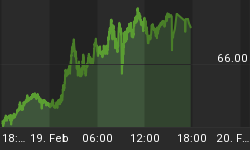The internal combustion engine has already reached a peak in sales.
That startling conclusion comes from a new report from Bloomberg New Energy Finance (BNEF). “Sales of internal combustion passenger vehicles have already peaked, and may never recover unless EV growth falters, or major economies such as China invest in significant stimulus programs,” BloombergNEF wrote.
EVs may reach price parity with the internal combustion engine by the mid-2020s, even as there is variation between countries and market segments. But new policies are largely heading in one direction: tighter or more costly restrictions on vehicle emissions, which will favor EVs over gasoline and diesel.
To be sure, EVs still account for only about 0.5 percent of the auto market. But while EVs may be growing from a small base, they are growing quickly. Over 2 million electric vehicles were sold last year, up from a few thousand in 2010, “and there is no sign of slowing down,” Bloomberg New Energy Finance said in its report. “We expect annual passenger EV sales to rise to 10 million in 2025, 28 million in 2030 and 56 million by 2040.” By 2040, more than half of all vehicle sales will be EVs, and more than 30 percent of the global fleet will be electrified.
While passenger vehicles garner much of the attention, electrification in other segments is important as well. Indeed, electric buses are more likely to achieve a faster transition than passenger cars. E-buses are just getting going, but the market is rapidly picking up steam. The e-bus market expanded by 32 percent in 2018, according to BloombergNEF, with China accounting for 99 percent of the fleet to date. China has 421,000 e-buses on the roads while the U.S. only has 300.
By 2030, electric buses will capture more than half of the market, while EVs in the passenger segment will only be approaching 10 percent. It will take almost until 2040 before passenger EVs overtake the sales of the internal combustion engine. Related: Why Now May Be The Best Time Ever To Hold Gold
However, as Liam Denning points out for Bloomberg Opinion, even as it will take time for EV sales to surpass their fossil fuel counterparts, the more important metric may be when EVs capture more of the growth in sales. If EVs begin to seize all or most of the growth going forward, the position of major automakers – and the oil market – will quickly run into trouble. It only takes change at the margins to create significant disruption.
That may already be underway. Last year, EVs took home all of the growth in the auto market, a trend that is likely to continue, even if some short-term fluctuation is possible. In other words, the peak of the internal combustion engine may already be here. Independent researcher and journalist Gregor Macdonald has been beating this drum for quite a while, noting that gasoline and diesel vehicle sales in China have already hit a peak as well.
As the internal combustion engine sees sales plateau at a time when EV sales are soaring, automakers and Big Finance will turn to the growth opportunity.
With the writing on the wall, automakers are increasingly pivoting towards the electrification of their fleets. VW, for instance, is aggressively transforming itself into an EV manufacturer, no doubt egged on by its wide-ranging emissions cheating scandal. By 2028, VW will have 70 battery-electric models, which will require overhauling 16 factories. It also recently announced that it would spend 1 billion euros to build a battery manufacturing facility in order to ensure a steady supply of batteries, rather than relying on battery-makers from around the globe. Related: Fake News Sinks Shares In UK-Based Bank
This story may apply more broadly to the energy transition, not just to transportation. Fossil fuels dominate, and clean energy is still relatively small. But the lumbering giant is beginning to crumble. The 170 companies in the Russell 3000 Energy Index are down 12 percent since the start of 2017, according to Matthew Winkler of Bloomberg News. The decline comes even as broader equity markets have climbed substantially. The Russell 3000 gained 27 percent over the same period.
More importantly, clean energy stocks have done even better. The 89 publicly-traded companies that earn at least 10 percent of their revenues from clean energy, as identified by BloombergNEF, have seen their stocks rise by 50 percent since the beginning of 2017, Winkler points out.
In other words, if you invested in an oil or gas company in 2017, you likely have seen negative returns since then. If, instead, you chose to put your money in a clean energy company, you are likely pleased with that decision today.
By Nick Cunningham of Oilprice.com
More Top Reads From Safehaven.com:

















